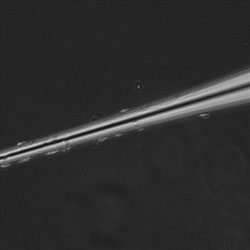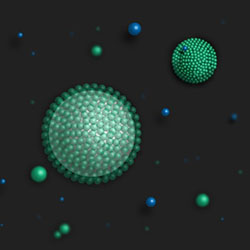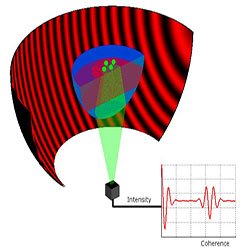 Home > Research > Optical Sensing
Home > Research > Optical Sensing

Biophotonics
Conventional microscopy of biological elements presents many optical challenges. We are developing novel procedures for studying biological media by taking advantage of multimodal photonics systems and modern image processing techniques and algorithms.

Colloidal physics
We are developing photonics-based technology for studying colloidal dynamics at high optical densities and over an extended domain of hydrodynamic regimes. The targeted applications include measurements of absorption, sedimentation, hydrodynamic interactions, particle aggregation, and dynamic properties of solvents.

Stochastic sensing
Notorious deficiencies of current sensing technologies include the limited volume of interaction, reduced number of detectable photons, and difficulties in the development of minimally invasive techniques. We are developing fundamentally new sensing approaches based on the subtle interplay of light scattering, interference, and amplification. Flexible control of electromagnetic fields offers access to robust and statistically stable information about physical properties that vary randomly in time or space. Operating on principles of statistical optics, chip-based stochastic sensing microsystems can become alternatives for various cutting-edge microscopies which rely on isolating small volumes of analyte or require high-resolution scanning over minute dimensions of a sample.